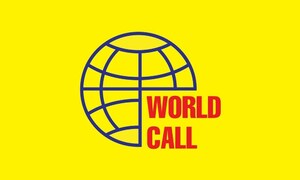FBR tells IMF: No need for contingency revenue measures
- However, one proposal to impose lower rate of sales tax between 5 to 7 percent on petroleum products under examination
ISLAMABAD: The Federal Board of Revenue (FBR) Tuesday conveyed to the International Monetary Fund (IMF) that there is no urgent need to enforce additional taxation measures (contingency revenue measures), except examine a proposal to impose a lower rate of sales tax between 5 to 7 percent on petroleum products to overcome revenue shortfall in 2024-25.
It is learnt that the proposal to impose a lower rate of sales tax on petroleum products has not been finalized, but it is under examination of the FBR as a revenue generation measure in the remaining period of 2024-25.
The FBR has conveyed to the IMF that there is no urgency to enforce contingency revenue measures at the end of first quarter of 2024-25. At this stage of fiscal year, the implementation of the contingency revenue measures would be too early, FBR has conveyed to the IMF.
IMF team looks at fiscal performance
The government on Tuesday assured the International Monetary Fund (IMF) to continue economic reforms agreed under the $7 billion Extended Fund Facility (EFF) programme to achieve economic stability.
The visiting IMF team led by mission chief Nathan Porter on Tuesday visited the Ministry of Finance, where Finance Minister Muhammad Aurangzeb welcomed them.
Minister of State for Revenue Ali Pervez Malik, Federal Board of Revenue (FBR) chairman Rashid Mehmood Langrial and State Bank of Pakistan (SBP) Governor Jameel Ahmad also accompanied the finance minister. The meeting discussed progress on the EFF worth $7 billion by the global lender.
Aurangzeb briefed the IMF mission on targets achieved by the government in the first quarter of the ongoing fiscal year and expressed confidence in implementing the measures suggested by the IMF in letter and spirit.
Sources revealed that after initial meeting in the Finance Ministry, sectoral meetings were held in a local hotel. Sources said the IMF mission was informed about the plan to achieve the annual target of Rs12,970 billion.
It was also briefed about the digitalization strategy of the entire supply chain of various businesses and the plan to expand the scope of the digital monitoring system to more sectors, the sources added. The IMF team was also informed about the progress of track and track system in petroleum, beverages, pharmaceuticals and steel sectors.
The Federal Board of Revenue (FBR) has suffered revenue loss of Rs 1.25 trillion during 2022-23 on account of sales tax exemption granted to the petroleum products, according to the last Tax Expenditure Report-2024.
The FBR’s Tax Expenditure Report-2024 revealed that more specifically within the largest tax expenditure availing sector of POL products there are four main components namely MS (Petrol), High Speed Diesel Oil, Kerosene and Light Diesel Oil having the greatest share of Sales Tax Expenditure. These four items recorded a growth of 98.66 percent.
The share of these four items is 43.99% in overall sales tax expenditure. It is however appropriate to point out that the said increase of these four major POL items is based on sales tax expenditure calculated for 2021-22 over the period of five months as compared to sales tax expenditure calculated over a period of twelve months for 2022-23 due to the fact that the said four items were zero rated from February 1, 2022 vide SRO 321(I)/2022, dated 01-03-2022.
Consequently, Sales Tax expenditure for five months duration (Feb-June) of 2021-22, incurred on aforesaid four POL products was reported as Rs 633.0 billion while sales tax expenditure for entire year (12 month) duration (July-June) of 2022-23, incurred on said four POL products is reported as Rs 1,257.50 billion.
Copyright Business Recorder, 2024























Comments
Comments are closed.